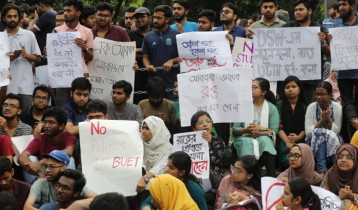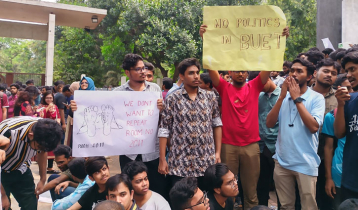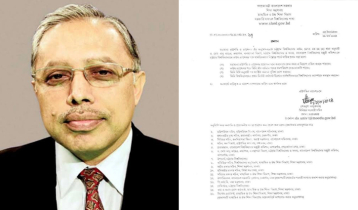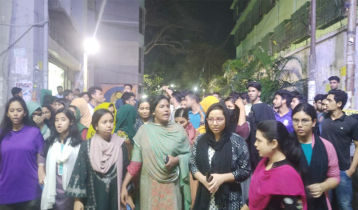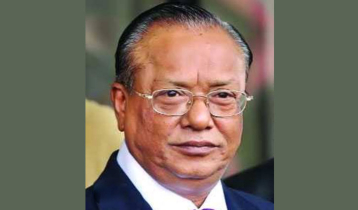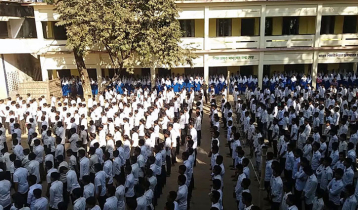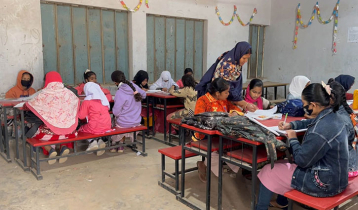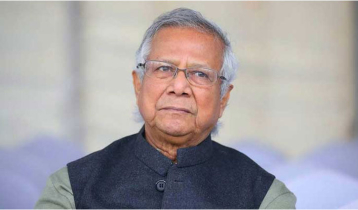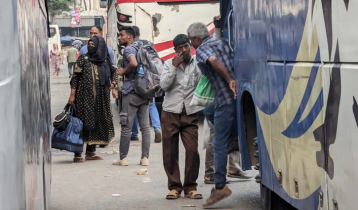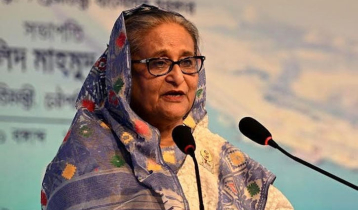‘Biden admin will bring changes for int’l students’
Campus Desk || risingbd.com
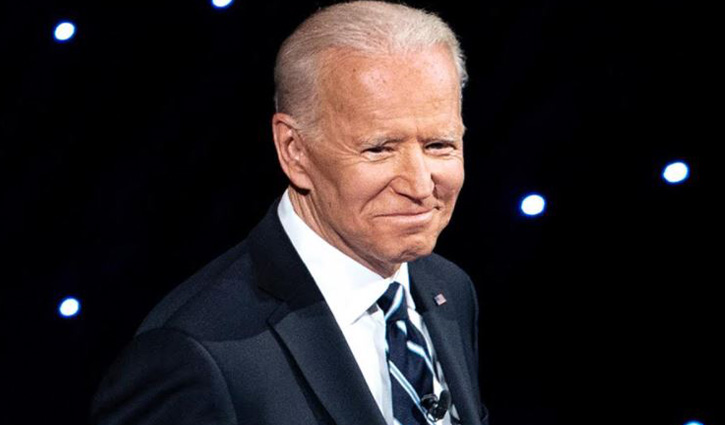
The year I became an international student at Princeton University, Donald Trump became president of the United States. Back then, I considered myself a mere observer of American politics; as a citizen of South Korea, I thought, that wasn’t my fight to fight.
Yet I still had the gnawing sense that, under a president who openly disparaged immigrants, I wouldn’t be able to stay on the sidelines forever.
Now, as a college senior who has known America only under Trump’s presidency, I’ve come to learn that my instincts were right.
The past four years have fundamentally transformed what U.S. politics mean not only for young people in general, but especially for those who, by nature of their citizenship status, are unable to vote.
What once seemed like someone else’s fight has irrevocably become our own.
For the more than a million international students in the U.S., the 2020 presidential election capped four years of anxiety-provoking policy changes and a growing unease about our presence here. In September, the Department of Homeland Security proposed academic visa restrictions that would limit foreign students’ duration of stay.
In July, U.S. Immigration and Customs Enforcement had announced that international students would not be able to stay in the country if they didn’t take at least one in-person class in the fall. The policy was quickly rescinded for visa-holding students after universities and employers across the country pushed back, but a similar restriction persisted for international students — like incoming freshmen — who had yet to obtain a U.S. visa.
The administration has also introduced new hurdles in the H-1B visa program, limiting the ability of skilled foreign workers to make their contribution to U.S. society, and has revoked the visas of over a thousand Chinese students, claiming links to the Chinese military.
A 2020 pre-election survey found that 43 percent of international candidates for business schools said they were less likely to pursue a U.S. degree if Trump was re-elected.
Biden’s election will give us permission to stop holding our breaths.
He strikes many of us as a leader who sees us not as America’s great impediment, but rather as a complement to its identity.
Biden has prioritized diversity in the workings of the country, a welcome change from a president whose administration, in September, began investigating my university for its well-meaning attempt to address systemic racism.
Even if we, as foreign nationals, will never participate in this country’s political apparatus, we have realized over the last four years that we are not immune from a system in which differences are criticized rather than embraced.
When I first arrived in the U.S., I was amazed at how easily I could blend in. But I still had to learn what it means to be viewed as a person of color, an identity I’d never had to navigate in my native South Korea or in Hong Kong, where I grew up.
And as the complexities of America dug deeper under my skin, so did the impacts of the xenophobia that Trump has tried to normalize. I couldn’t go out for a run without thinking of story after story about the innocent East Asian people who were harassed and attacked for what President Trump flippantly called the “China Virus.”
Even now, my parents call me from Seoul to warn me about being alone on the streets. I find myself diligently wearing a cap that ostensibly blocks the sun and also does double duty by obscuring my face.
As Soham Mall, a senior at the University of Chicago,wrote in early November in The Chicago Maroon: “At times like these, it is easier to think of the man who accosted me and my friend in downtown Chicago on the very first day of [orientation] week, telling us that God hated us because we probably believed in Allah.”
Although I’ve never met Mall, who was born in India and raised in the Philippines, I understand his fear and frustration. Trump received over 70 million votes during this year’s election, and that suggests a Biden presidency will face a difficult challenge in trying to solve the deeper divisions of this country.
But we can begin to hope. This year, I’ve seen more international students encourage their domestic peers to vote. Many have gotten involved in leading campus get-out-the-vote initiatives, urging schools to cancel classes on Election Day, and engaging in dialogue on where America can go from here.
Part of this may stem from the desire of many foreign students to live and work in this country — home to robust technology, finance and media industries — when they eventually finish school.
Source: The Hechinger Report
Risingbd/Mahfuz

